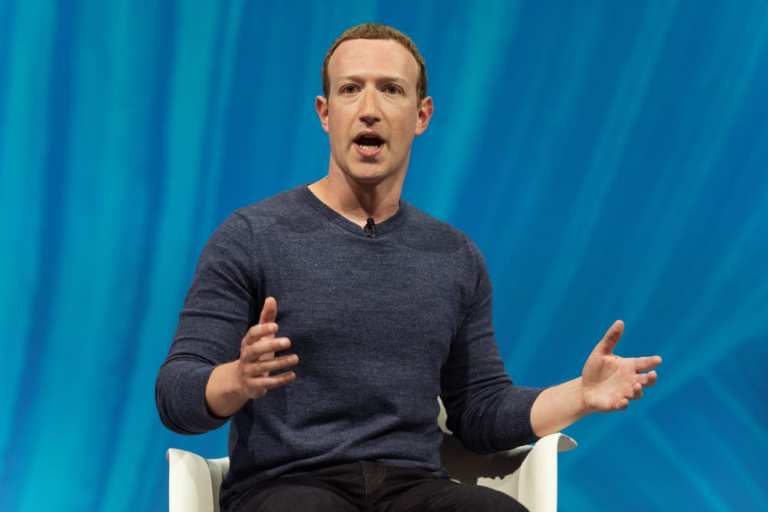Facebook Grows User Base 8 Percent, Bullish On Commerce

More consumers keep using Facebook even as the social network said on Wednesday (April 24) that it faces a fine of between $3 billion and $5 billion from the Federal Trade Commission over privacy. Indeed, even as Facebook reported not only gains in users but mobile advertising for the first quarter of 2019, CEO Mark Zuckerberg put a spotlight on digital privacy when discussing his company’s latest financial results.
The anticipated and one-time fine that Facebook will pay to the FTC stems from the agency’s investigation into Facebook’s privacy practices. The federal agency has accused the social media platform of violating a privacy consent decree from 2011. Facebook allegedly said it would take certain measures to protect user privacy and their data. Since then, Facebook has been accused of mishandling user data in the Cambridge Analytica scandal.
A judge would have to approve any settlement between the two parties, which would likely include the fine and changes to Facebook’s business practices. The FTC could also subject the social media giant to tougher checkups to prove it is complying with the settlement. Facebook executives, during the conference call with investors after the earnings release, declined to give more details about the potential fine.
Largest Fine
So far, the largest fine the agency has imposed on a tech company was the $22.5 million Google paid to settle a consumer data probe in 2012.
That news about how much Facebook expects to pay the FTC to settle those issues came as the social media platform disclosed that its daily active user base increased 8 percent year over year in the first quarter of 2019, to 1.56 billion on average as of March 2019. Monthly active users stood at 2.38 billion as of March 31, 2019, representing an 8 percent increase year over year — and bolstering theories that despite the recent Facebook controversies over user privacy and data, consumers are not fleeing the social media platform.
Privacy Push
But Facebook, like so many other digital firms, especially the biggest ones, is trying to get ahead of regulators and even find an edge as more consumers voice concerns about online privacy. During that post-earning conference call, Zuckerberg touted a fledgling and ongoing effort at Facebook to create what he called the “digital equivalent of the living room,” as opposed to the “public square” that most of social media is now.
Facebook, he said, wants to build services and platforms around the idea of offering more privacy — more specifically, that means what he called “intimate spaces” online, encryption, and not keeping around posts, messages or even consumer data “for longer than necessary.” That also means, he said, making sure data is stored in countries where the conditions are most favorable for security — that is, avoiding places where laws or political instability might tempt officials to violate that data security.
“In the next few years, we’ll be building around those things,” Zuckerberg said, offering no more specifics. He also renewed his called for standard, widespread privacy protections, in the manner of Europe’s General Data Protection Regulation (GDPR).
Payments and Messaging
When talk turned to payments during that Wednesday call, Zuckerberg sought to tie that issue to privacy after an investor asked about the progress of payments and commerce services via the Facebook-owned WhatsApp messaging app. India is one of the top places where Facebook is trying to use WhatsApp to gain more power in digital commerce and payments, though Zuckerberg offered no specifics about how things are going with that.
“The goal would be to have something were you can do (product) discovery though the broad town square on platforms like Instagram,” he said, then have those consumers use Facebook’s private messaging tools to complete transactions and build tighter relationships with specific merchants. That is certainly not a new vision but is does underscore one of the major themes in the Wednesday call, the one overshadowed by that looming FTC fine — privacy.
A fair part of the call was taken up by Facebook’s optimism about the commerce and payments potential of Instagram — even as, yet again, few hard details were offered. For instance, a relatively new Instagram feature, Checkout, enables users to browse and purchase products from 23 participating U.S. brands. Facebook executives seemed pretty happy with the progress on Checkout so far but said it was too early to share meaningful metrics.
Revenue Gain
Even with the expected FTC fine looming for Facebook, investors seemed pleased with the social medial platform in after-hours trading, sending the stock price up at least 6 percent.
For the first quarter of 2019, Facebook reported a 26 percent year-over-year revenue gain, to nearly $15.08 billion. That beat the Refinitiv forecast of $14.98 billion. The daily and monthly active user bases pretty match analyst forecasts, and the Q1 average revenue per user stood at $6.42, beating out the $6.39 analyst forecast. For mobile advertising, Facebook said that in Q1, it accounted for 93 percent of all advertising revenue, up from 91 percent for the same period last year.
Next up for Facebook comes more work on privacy, and more data about its efforts to gain more power in payments and commerce.